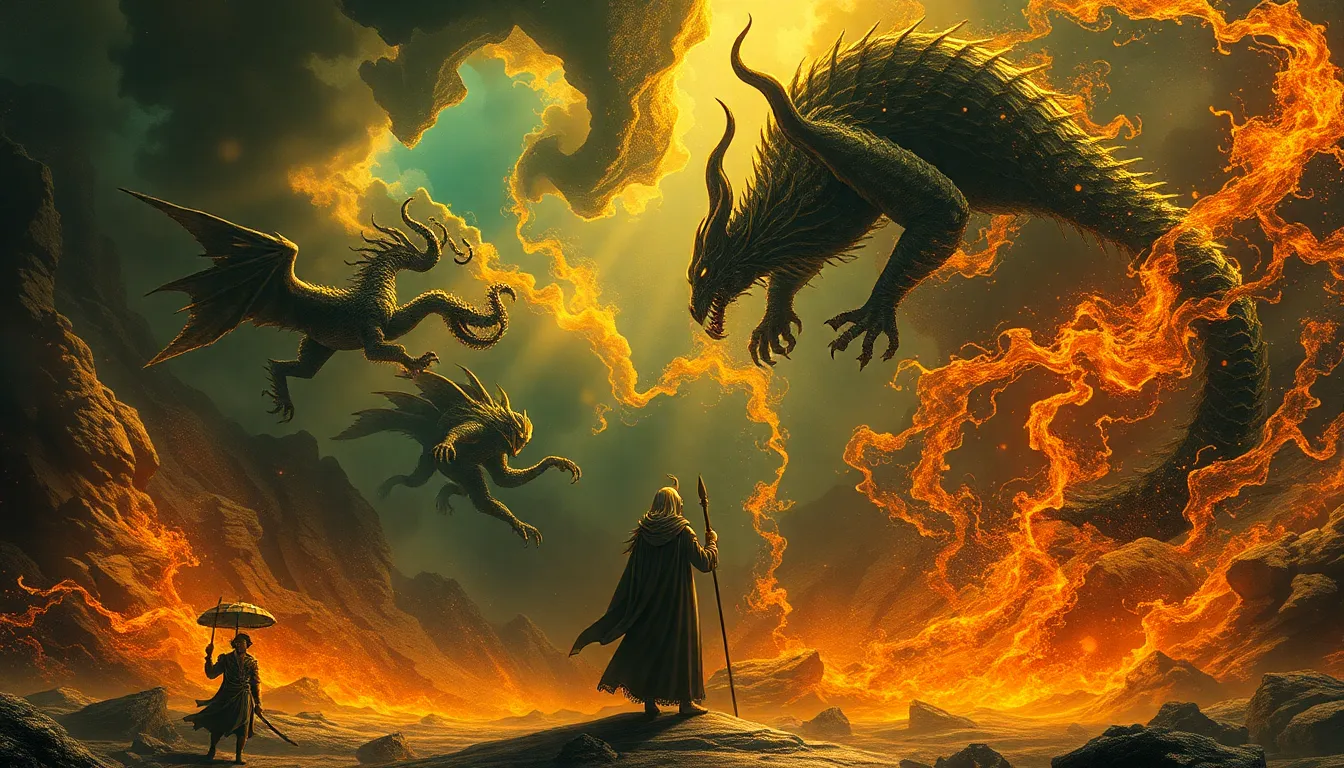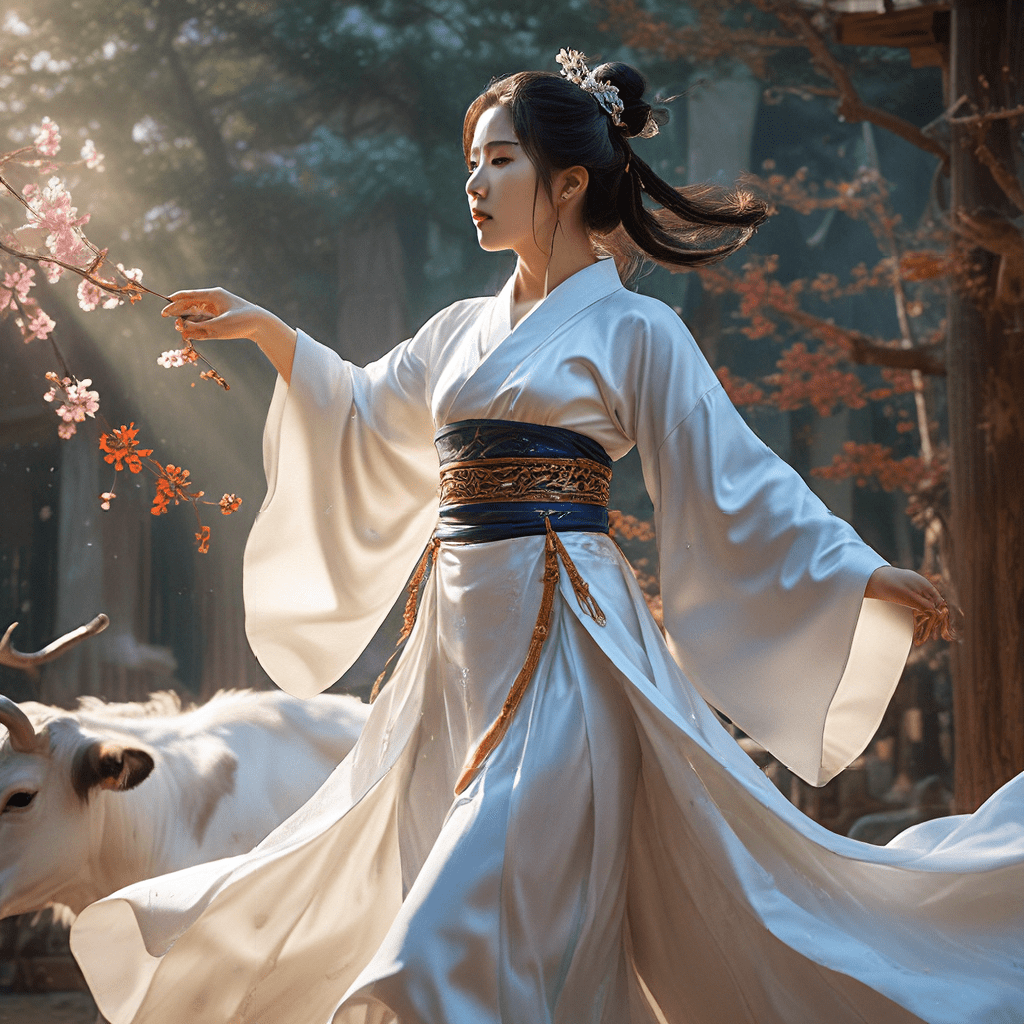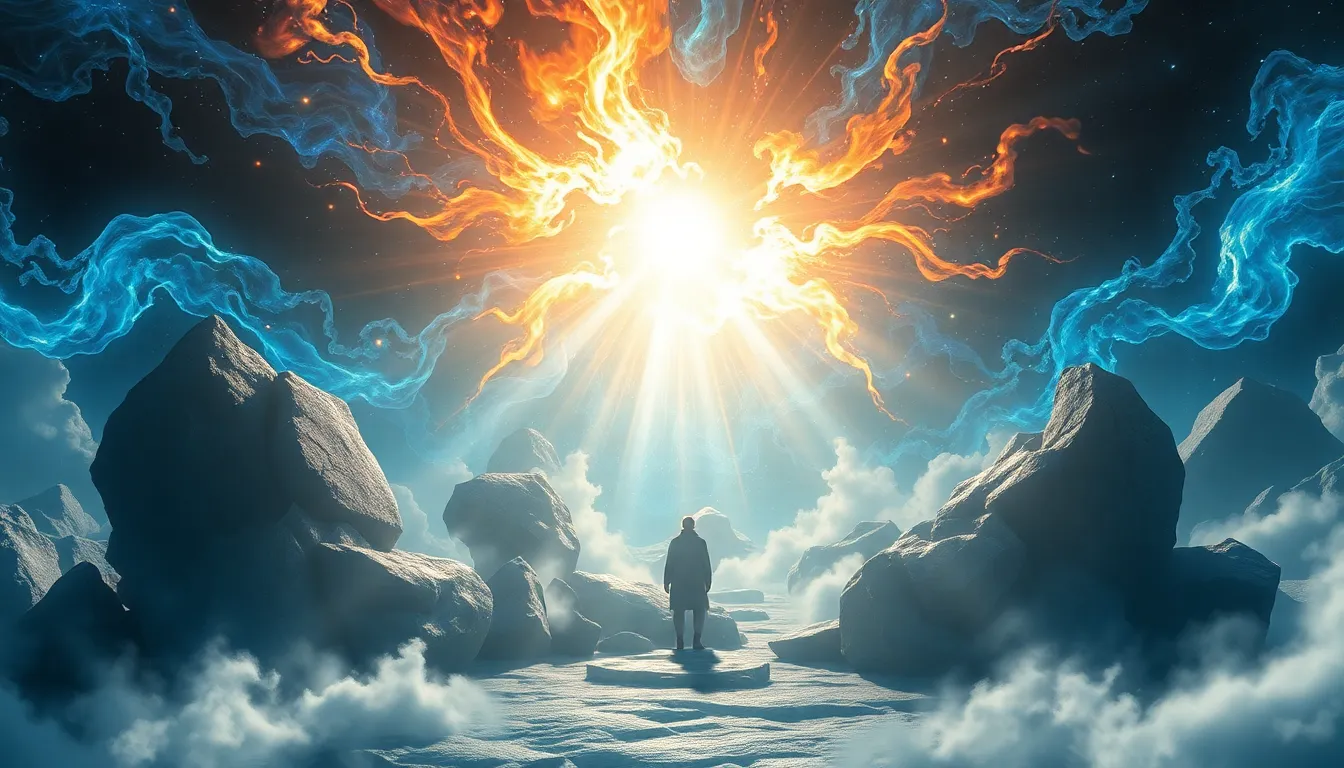Creation Myths: The Stories That Bind Humanity Together
I. Introduction to Creation Myths
Creation myths are foundational narratives that explain the origins of the world, humanity, and the universe. They serve as ancient blueprints for understanding existence, providing insights into the values, beliefs, and cultural identities of different societies. These myths often address profound questions about life, creation, and the human condition, reflecting the hopes and fears of the civilizations that tell them.
Across various cultures, creation myths play a significant role in shaping worldviews and social structures. They are not merely stories; they are essential components of cultural heritage that connect generations and provide a shared sense of purpose. This article explores the common themes, historical contexts, and the diverse expressions of creation myths across different cultures, highlighting their importance in both historical and contemporary society.
II. Historical Context of Creation Myths
The origins of creation myths can be traced back to ancient civilizations, where they emerged as a means of explaining the mysteries of existence. These myths often arose in response to natural phenomena, human experiences, and the need for understanding the world. As societies evolved, so did their myths, influenced by language, culture, and interactions with other peoples.
Over time, creation myths have adapted and transformed, reflecting changes in societal beliefs and values. The impact of oral storytelling traditions cannot be overstated; as these myths were passed down through generations, they were subject to reinterpretation and embellishment, leading to a rich tapestry of narratives that vary widely yet share common threads.
III. Common Themes in Creation Myths
Despite the vast diversity of creation myths, several common themes emerge:
- Chaos and order: Many creation myths begin with a chaotic state of existence, from which order emerges. This transition often symbolizes the establishment of cosmic and social order.
- The role of gods and divine beings: Creation is frequently attributed to the actions of gods or divine entities, highlighting the belief in higher powers that govern the universe.
- The notion of sacrifice: Sacrifice is a recurring element, often representing the idea that creation involves loss or transformation, which is essential for the emergence of life and order.
IV. Creation Myths Across Different Cultures
Creation myths vary significantly across cultures, yet they often reflect similar existential themes. A comparative analysis reveals fascinating insights:
1. Mesopotamian Creation Stories
One of the most notable texts is the Enuma Elish, which describes the creation of the world through the struggle between gods. It emphasizes the themes of chaos and order, illustrating how Marduk defeats Tiamat to create the cosmos.
2. Indigenous Creation Narratives
Indigenous cultures, such as Native Americans, have rich creation stories that often emphasize the relationship between humans and nature. These narratives frequently feature animals and natural elements as central figures in the creation process.
3. Eastern Philosophies
In Hinduism, creation myths are multifaceted, with stories like the Rigveda describing the universe’s cyclical nature and the role of deities like Brahma. Buddhism, on the other hand, often emphasizes the impermanence of existence, providing a unique perspective on creation.
4. Western Religious Texts
The book of Genesis in the Bible offers a well-known creation narrative, depicting the world created in six days by God, culminating in the creation of humanity. This story has had profound implications on Western thought and religious beliefs.
V. The Psychological and Social Functions of Creation Myths
Creation myths serve vital psychological and social functions within cultures:
- Cultural identity: These myths help shape cultural identity, providing a sense of belonging and continuity through shared narratives.
- Existential explanations: They offer explanations for human existence, addressing fundamental questions about life, purpose, and the nature of reality.
- Social cohesion: Creation myths often foster social cohesion, uniting communities around shared beliefs and values, which can be particularly important in times of crisis.
VI. The Influence of Creation Myths on Art and Literature
The impact of creation myths extends beyond oral traditions into the realms of art and literature. Throughout history, artists have drawn inspiration from these narratives, creating visual representations that capture their essence.
In literature, creation myths have been reinterpreted and adapted, influencing countless works from ancient epics to modern novels. Contemporary authors often explore these themes, reshaping them for new audiences and contexts.
Modern media, including film and television, continues to portray creation myths, often blending traditional narratives with contemporary issues, thereby keeping these important stories alive in public consciousness.
VII. Scientific Perspectives on Creation and Myth
The relationship between creation myths and scientific theories is complex. While myths often provide spiritual explanations for existence, scientific theories such as the Big Bang and evolution offer empirical frameworks for understanding the universe’s origins.
Historically, mythology played a crucial role in early scientific thought, as ancient scholars sought to explain natural phenomena through narrative. Today, many people find ways to reconcile scientific understanding with mythological narratives, viewing them as complementary rather than contradictory.
VIII. The Resurgence of Creation Myths in Contemporary Society
In recent years, there has been a revival of interest in creation myths within popular culture. This resurgence is evident in literature, film, and even social media, where ancient stories are reexamined and reinterpreted.
Modern spirituality has also embraced these myths, often incorporating them into new religious movements that draw on ancient wisdom to address contemporary spiritual needs. Social media platforms enable the sharing and reshaping of these narratives, allowing for a global dialogue on their significance.
IX. The Future of Creation Myths
As the world continues to change rapidly, creation myths will likely evolve to reflect new realities and challenges. Technological advancements may give rise to new narratives that explore the implications of artificial intelligence, genetic engineering, and space exploration.
Future creation myths may emerge from the intersection of science and spirituality, addressing humanity’s role in a technologically advanced world while still honoring ancient traditions. The enduring quest for meaning will ensure that these stories remain relevant, serving as a bridge between the past and the future.



